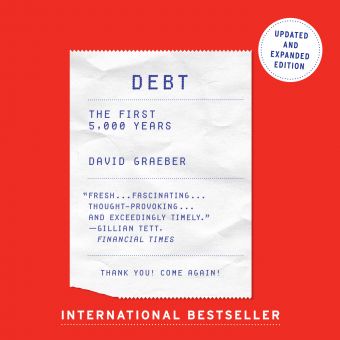What do you think?
Rate this book


Audiobook
First published July 12, 2011
“Up in our country we are human! " said the hunter. "And since we are human we help each other. We don't like to hear anybody say thanks for that. What I get today you may get tomorrow. Up here we say that by gifts one makes slaves and by whips one makes dogs."
What is a debt, anyway? A debt is just the perversion of a promise. It is a promise corrupted by both math and violence. If freedom (real freedom) is the ability to make friends, then it is also, necessarily, the ability to make real promises. What sorts of promises might genuinely free men and women make to one another? At this point we can't even say. It's more a question of how we can get to a place that will allow us to find out. And the first step in that journey, in turn, is to accept that in the largest scheme of things, just as no one has the right to tell us our true value, no one has the right to tell us what we truly owe.

For a very long time, the intellectual consensus has been that we can no longer ask Great Questions. Increasingly, it’s looking like we have no other choice.
Many attempts have been made by writers on art and poetry to define beauty in the abstract, and express it in the most general terms, to find a universal formula for it. The value of these attempts has most often been in the suggestive and penetrating things said by the way.
